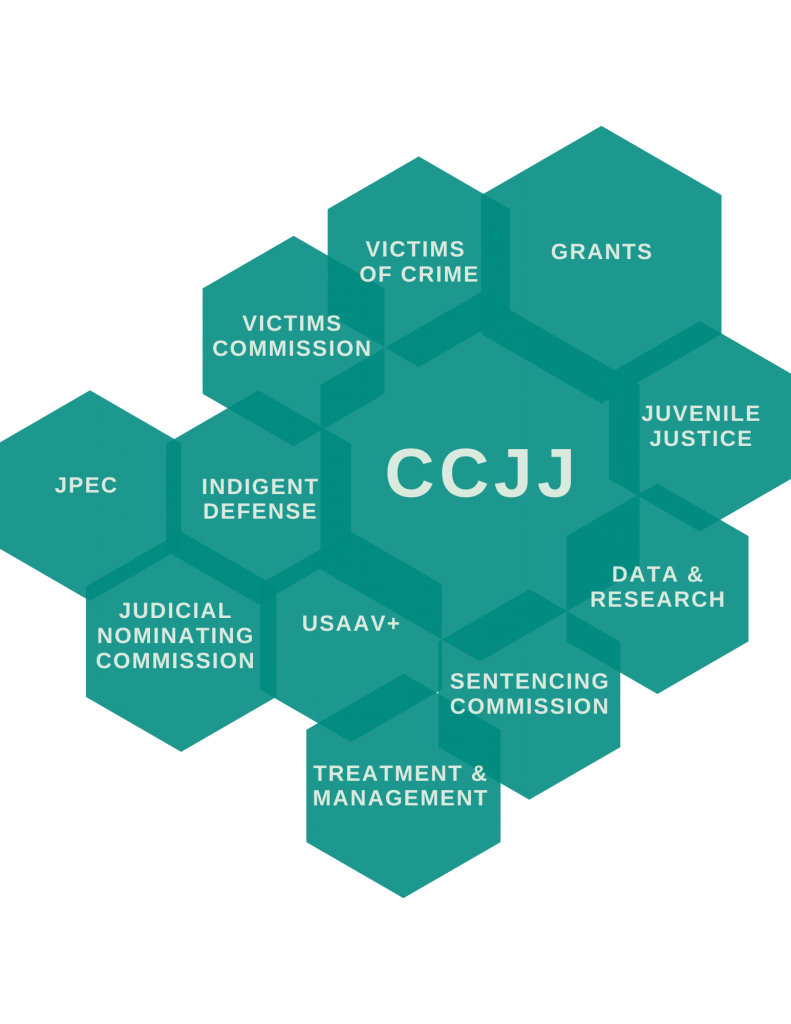About Us
Created in 1983, the Utah Commission on Criminal & Juvenile Justice is the coordinating body for criminal and juvenile justice policy in Utah. We are staffed by various experts in their respective fields who assist the Commission in fulfilling its statutory duties and obligations set forth by the governor and legislature.
Vision
We envision a justice system that is unified across all branches and level of government which:
- Serves the community and instills public confidence and support.
- Ensures the safety and security of all citizens, provides assistance for victims, and affords a just process for those accused of violating the law.
- Is founded on principles of respect for diversity, timely and equal access to services, and a comprehensive approach to criminal and juvenile justice that includes prevention and treatment.
Mission
Our mission is to connect and collaborate with system stakeholders on criminal and juvenile justice policy with the goal of reducing crime and delinquency in Utah.
By delivering an objective and wide-ranging research and grant agenda, the Commission ensures current and sought after policies rest on sound data and input from diverse perspectives.
2024-2027 Strategic Plan
In 2023, CCJJ began a strategic planning process to identify strengths, challenges, gaps, and opportunities within the agency. Based on the agency assessment findings, strategic goals and objectives were developed. It is the hope of our agency to implement this strategic plan on an ongoing basis where it is reviewed often, integrated into our daily operations, and actively guides our decision making.
Our Team
We are an office with diverse experience working together to create a better criminal and juvenile justice system for all!
Meet the Team

Commission Members
CCJJ consists of twenty-six statutorily delegated and appointed members representing all facets of the criminal and juvenile justice system including judges, prosecutors, defense attorneys, legislators, victim representatives, law enforcement, treatment specialists, corrections, parole authorities, education, and community partners.
Learn More
